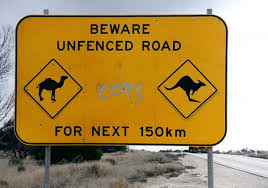It's been a while since I wrote a blog, so it's time to get back to work. I gave myself the entire month of July off. Off of the computer, Twitter, Nings, blogging, my RSS. Off from reading educational treatises online and off, off from reading school books. Now, I'm feeling a little behind the eight ball, but refreshed and ready to start a new school year.

I've been reading the latest issue of
The English Journal (Vol. 98, no. 6, July 2009) and enjoying the theme of fun in the English classroom. Teaching is fun for me and that's why I do it. I spent too long in college and graduate school because I refused to get into a career that was not intrinsically rewarding to me. I didn't want to spend my life earning a paycheck. I wanted to spend my life pursuing a calling that would allow me to continue to grow and learn about myself. A career that benefited others, but also (selfishly?) benefited myself. My first couple of years in the classroom were tough and I vowed that I would stick it out for ten years then find myself another calling. After my fourth year, I no longer entertained thoughts of ever leaving the teaching profession. I am now excited to begin my thirteenth year of teaching and looking forward to the changes and opportunities that this new school year offers.
I enjoyed Tom Romano's essay "Defining Fun and Seeking Flow in English Language Arts." I was first introduced to
flow, a concept identified and studied by Mihaly Csikszentmihalyi, in my senior seminar for Psychology majors in college. Now I'm thinking about how to help my students experience it in a 45 minute class period. I find it to be a bit unfair to put this kind of goal or expectation on ourselves as teachers. My students travel from class to class with two minutes of passing time, social concerns buzzing in their minds, a laptop to distract them throughout the class period. How can I create a meaningful learning experience which they value and willingly participate in. Well, that's the real challenge isn't it. And, I'm not afraid of a challenge.
The following points are summarized from Csikszentmihalyi's descriptions of elements reported by people who experienced flow in
Flow: The Psychology of Optimal Experience.
- we can experience flow when we confront tasks that we have a chance of completing
- we must be able to concentrate on what we are doing
- concentration is possible because the task has clear goals and provides immediate feedback
- deep and effortless involvement removes from awareness the worries and frustrations of everyday life
- enjoyable experiences allow people to exercise a sense of control
- concern for the self disappears, and the sense of self emerges stronger
- the sense of the duration of time is altered
Thinking of teenagers with these concepts in mind is daunting. Can I invent a lesson that distracts a teen from the worries of his/her social life, left just minutes before in the hallway before class? Can we complete tasks in the 45 minute class period (minus settling in time)? In the above list, numbers 1-4 worry me, but 5-7 give me courage that this is possible and that these are the goals that teens want for themselves too. And, while no one is going to experience flow in my English classroom everyday, not even me, this is a goal worth setting for ourselves.

Romano continues in his essay to examine various angles of the English classroom and curriculum that invite fun in to help in achieving these daunting goals. This year I'd like to work toward emphasizing these areas in all of my classes:
- read a poem to the class (and have students take turns) for the fun sounds of language every day. This would be a great way to start class on time and get everyone focused on language, whether they just came from study hall or math class.
- read more essays throughout the year to make contemporary connections and to examine this idea from James Moffett from "English literature has maintained a marvelous tradition fusing personal experience, private vision, adn downright eccentricity, with intellectual vigor and verbal objectification. In color, depth, and stylisitic originality it rivals some of our best poetry."
- encourage students to write in and develop their own authentic voice, which Romano defines as voices which "provide substantive information, use narrative at least a little to make their points, and surprise readers with interesting perceptions." And most particularly encourage students to use humor in their writing. Keep it fun.
- I also want to check out and consider multigenre writing on Romano's website.
Teaching literacy these days is a huge challenge as the definition of literacy is currently in such flux. But the end products of literacy "thoughtfulness, judgment, and vision" (36) are so crucial to a satisfying and meaningful life that we English teachers may have the most important job in the world. At least, that's what I like to think.
 As a classroom teacher/facilitator, I think that one of my main jobs is to facilitate personal connections between my students. Or maybe it's because I'm an English teacher and our classes tend to be discussion based. I need my students to think and consider alternative points of view in order to develop their own opinions. So first and foremost they need to get along with and respect each other.
As a classroom teacher/facilitator, I think that one of my main jobs is to facilitate personal connections between my students. Or maybe it's because I'm an English teacher and our classes tend to be discussion based. I need my students to think and consider alternative points of view in order to develop their own opinions. So first and foremost they need to get along with and respect each other.

